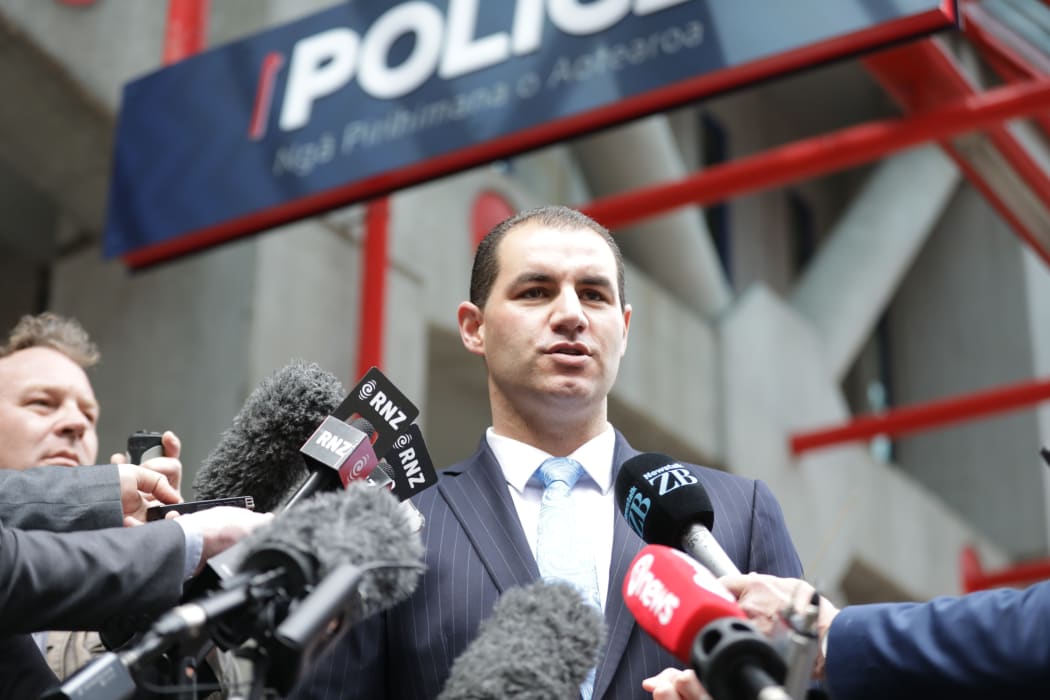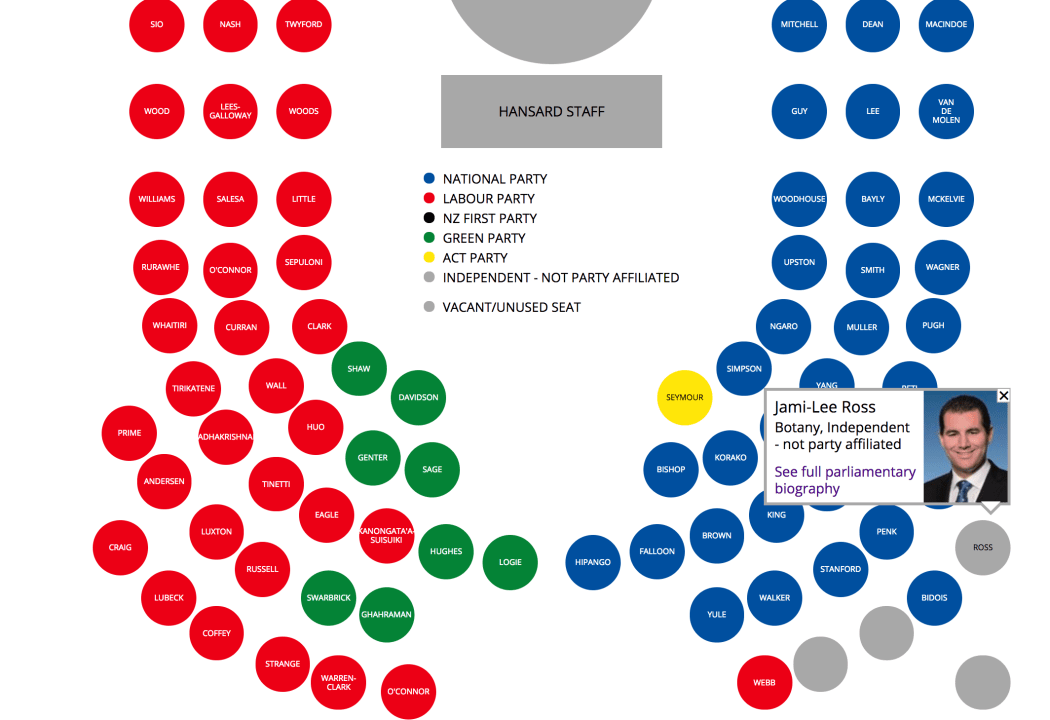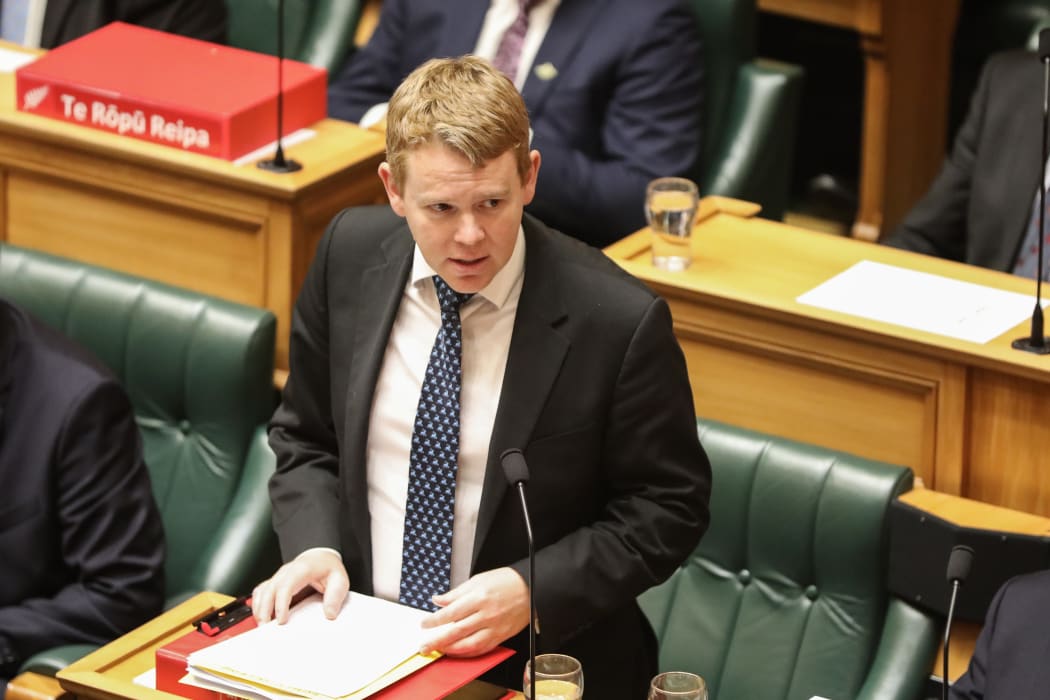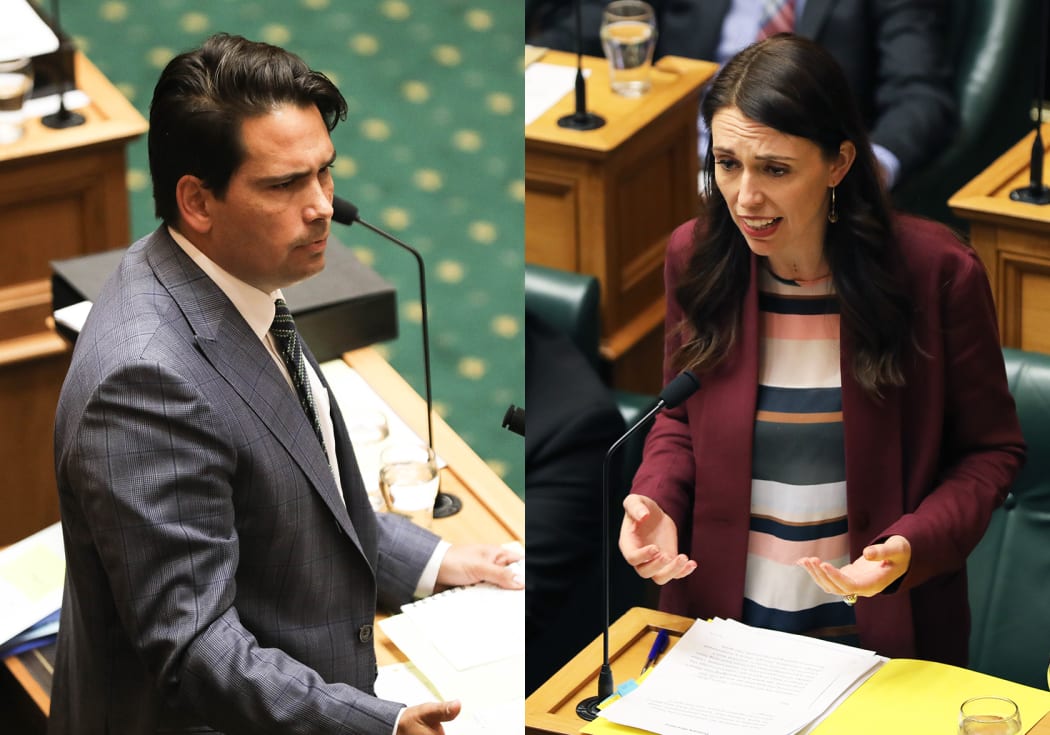Dominating political news this week are allegations from and about former National MP Jami-Lee Ross.
Mr Ross has accused the leader of the National Party, Simon Bridges, of breaching electoral law, and is himself facing accusations of harassment.

Jami-Lee Ross speaks to media after filing a complaint against National leader Simon Bridges. Photo: RNZ / Rebekah Parsons-King
He is no longer a member of the National Party but has said he will stay in Parliament.
The Calm within the Storm
But while the news was making waves throughout the country, inside the Chamber there were only occasional ripples.
One ripple was the Speaker sharing with the House that he had been notified that Jami-Lee Ross was no longer part of the National Party:
"Under Standing Order 35(1)(c), I have been advised by the senior Opposition whip that the National Party's parliamentary membership has changed and that Jami-Lee Ross is no longer a member of the National Party for parliamentary purposes. Accordingly, under Standing Order 34(5), Jami-Lee Ross is, from 16 October 2018, regarded as an Independent member for parliamentary purposes."
As a result, other little ripples included Mr Ross’ name now being called out separately during votes ('National Party, Labour Party, ... ACT Party, Jami-Lee Ross'), and his seat moving from the opposition front bench in the horseshoe-shaped chamber, to the back and bottom of the U, with the most junior National backbench MPs.
That's about it.

Jami-Lee Ross now sits at the back of the chamber as an independent. Photo: Parliament / screenshot
Around these changes, MPs got on with the usual business of quizzing the Government and passing legislation.
Kinds of Busy
In an effort to make sure the Government can get through al the laws it wants to pass, it extended Parliament’s sitting hours this week so there’d be more time to get stuff done.
The Leader of the House Chris Hipkins (who is in charge of such things), said it’s not the same as sitting under 'urgency'.
"Parliament can extend its sittings into the following morning if we have additional business that we want to do and time when the parliament wouldn't normally sit", he said.
Parliament usually sits from 2pm-10pm on Tuesdays and Wednesdays, and until 6pm on Thursdays. In the mornings MPs meet in smaller (select) committees, but that time can be used by the House to work on legislation if it needs more time.
"If we wanted to sit on a Wednesday morning we would extend the Tuesday night sitting into Wednesday morning," said Mr Hipkins.

The Leader of the House Chris Hipkins is in charge of the order in which the House works through government legislation. Photo: VNP / Phil Smith
"The difference between an extended sitting and urgency, is the only effect of an extended sitting, is it just gives you extra hours where Parliament is sitting; whereas under urgency you tend to be doing multiple stages of a bill at once. You might be bypassing a select committee process for example."
"Extended sitting means the bill is still going through all of the rigorous processes that it would go through during a regular parliamentary hearing, it's just that the hours are a little bit longer."
Read more about urgency or extended sittings.
A Lot on the To Do List
This week MPs managed to work through a fair amount including:
- the second reading of the Commerce Amendment Bill which the Government will use to investigate petrol prices
- passing the Education Amendment Bill, which removes national standards
- and the second reading of the Consumers' Right to Know (Country of Origin of Food) Bill which requires single component food (like fruit or meat) to have its country of origin on it.
Other familiar parts of Parliament carried on as usual including question time and the general debate, with little mention of Jami-Lee Ross and the National Party.
Little mention but not none.
How to Get in a Jab
The rules of Parliament usually prevent MPs from going on about anything they like, but those who know the rules well, also know how to bend them.
Question time is usually a series of 12 oral questions to Ministers, with follow-ups. The idea is that non-government MPs can interrogate Government MPs on their responsibilities - in other words, hold the government to account.
Supplementary (follow-up) questions are allocated proportionally and in one of the week's rare interpolations of the turmoil outside the Chamber into the proceedings the Deputy Prime Minister Winston Peters used one to make a dig at the National Party.
On Tuesday Jami-Lee Ross told media he drove from Auckland to Wellington to speak to them.

The Leader of the Opposition Simon Bridges (left) and Prime Minister Jacinda Ardern (right). Photo: VNP / Daniela Maoate-Cox
A few hours later in Question time the Opposition Leader Simon Bridges had been asking Prime Minister Jacinda Ardern about petrol prices when Winston Peters followed up with this:
"If petrol prices are so high, how could an individual afford to drive all the way from Auckland to Wellington just to deliver a message inside this building this morning?"
Ministers can only be questioned on what they are responsible for and the Speaker was quick to point out the Prime Minister has no responsibility for an opposition MP's choice of transport.
The question wasn't a waste of time though - sometimes no answer is required and the question itself is the weapon of choice.
Question time is the most noticed part of a sitting day so while it's a favourite time to score some political points.
Pounding in the Patupatu
Another feature of a Parliamentary sitting week is the general debate (patupatu whanui), which Mr Peters again used to throw some shade at the National Party.
The general debate is the only hour in the House where MPs can bring up any topic they like; unlike debates on bills which must stay on topic and question time which has to be focused on ministerial responsibility.
Parties often pick a theme that their MPs speeches focus on but Mr Peters took the opportunity to discuss the National Party's leadership.
"This speech is for the National Party's backbench, because their front bench is moribund, defunct. They are not going to last if they want to be anywhere and have shape in the 2020 election."
Read his full speech here.
Aside from his speech in the General Debate, Deputy Prime Minister Winston Peters made this point of order:
The Long Farewell
"I wonder if I could ask Mr Hipkins as to whether he's given any consideration to the courtesy of giving a valedictory to Jami-Lee Ross of at least half an hour, because he's got things he wants to tell us."
Valedictory statements are a last speech to the House - they’re often funny and frequently bittersweet, with rueful glances back at the hard times as well as the victories.
MPs who are retiring from Parliament are often offered the chance to give a valedictory statement but Chris Hipkins said it’s not his decision alone to make.
"Based on past precedent, if a member retiring from Parliament requests a valedictory, that's either a matter for the Business Committee—and the Government would look favourably upon that if that was presented—or for the Speaker, if they wish to do a valedictory before the Business Committee met."
Catch up on what Parliament progressed through the House each day here.



